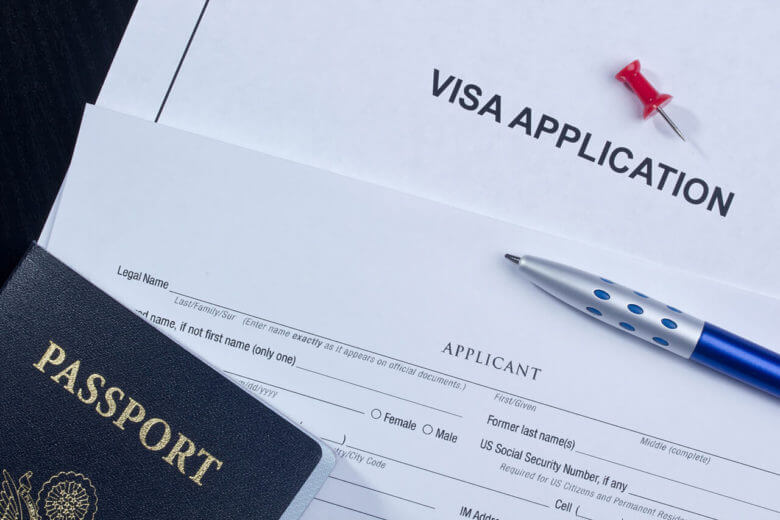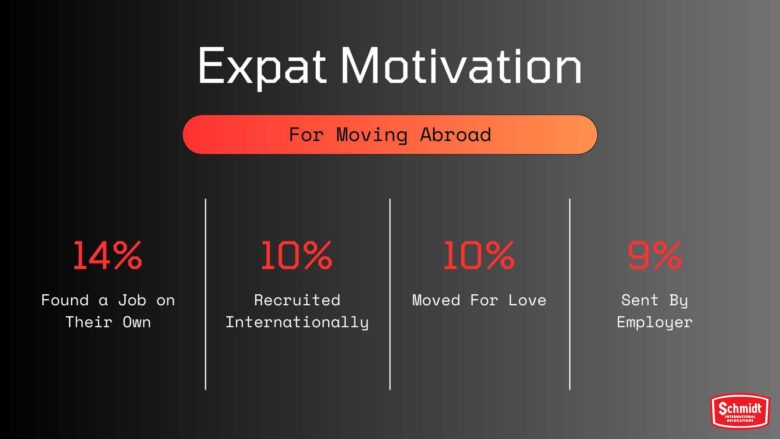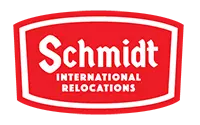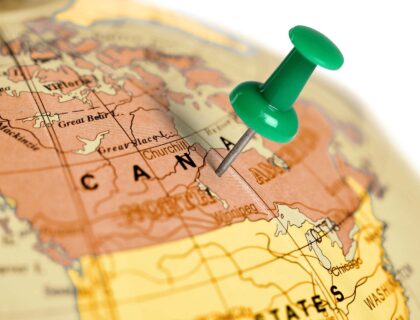

To those who aspire to work in Europe, the prospect of immersing oneself in a new culture, exploring vibrant cities, and gaining international work experience is an exciting and rewarding endeavor. However, working in Europe as an American can also present unique challenges and considerations.
To ensure a successful transition, start by thoroughly researching the job market in your European countries of interest. Understand the demand for your skills, visa and work permit requirements, and cultural nuances. Additionally, network with local professionals to gain insights and establish connections.
Invest in learning the local language and culture to enhance your integration. Familiarize yourself with differences in workplace culture and be prepared for the changes that come with moving internationally. Finally, embrace the adventure and seek guidance from professionals who can help you move with comprehensive international moving services.
Why Working in Europe as an American Is a Good Idea
Europe is indeed one of the best places to live abroad for multiple reasons. But for those looking to find a job abroad and advance their career, there’s a multitude of enticing advantages that make it an exceptional career move. Firstly, Europe boasts a rich cultural heritage and diverse societies, providing an immersive experience that broadens horizons and fosters personal growth.
Europe’s robust economy and well-established industries offer a wide range of job opportunities across various sectors, including technology, finance, healthcare, and more. Additionally, gaining international work experience in Europe adds a valuable dimension to your professional profile, demonstrating adaptability, a global mindset, and a willingness to step outside your comfort zone, and that makes relocating for a job so much worth it.
And finally, the chance to explore breathtaking landscapes, historic landmarks, and vibrant cities during weekends and holidays further enhances the overall experience, making working in Europe as an American an exciting and fulfilling adventure.
Where Should Americans Start When Looking for Overseas Employment?
When looking for overseas employment as an American, it’s crucial to start with thorough research and planning for the move. Here are a few key steps to consider:
- Determine your career goals, preferred industry, and the countries that align with your aspirations.
- Each country has specific visa and work permit regulations. Research the requirements, determine if you’re eligible to work in your target countries, and prepare all the needed documents.
- Online job portals, networking platforms, and professional organizations can be valuable resources for finding job opportunities abroad. You can start searching on LinkedIn with the specified region or check out EURES, the official website of the European Union.
- International job fairs and career events offer excellent opportunities to network with employers and explore overseas employment options.
- Research organizations with a global presence and explore opportunities to transfer or apply for positions within their international branches.
- International recruitment agencies specialize in helping individuals find employment opportunities abroad.
- Reach out to expat communities to find those who have successfully found work abroad or professionals working in your desired countries.
Remember, patience and persistence are key when seeking overseas employment. Stay proactive, stay informed, and be open to new opportunities that arise during your journey.
How Difficult Is It to Get a Job In a European Country as a Foreigner?
Getting a job in a European country as a foreigner can vary in difficulty depending on several factors. Generally, the competitiveness of the job market, the specific country’s immigration policies, and your qualifications and skills play crucial roles.
In some European countries, there may be a preference for hiring EU citizens due to freedom of movement regulations. However, many European countries also have skill shortages in certain industries, creating opportunities for foreign workers with specialized expertise. It’s important to ensure you do proper research and determine which is the best European country to live in based on these shortages.

#1 Research the Job Market in European Countries of Interest
Moving overseas to Europe can be a stressful experience, especially when it comes to finding a job and understanding the various laws and regulations that may apply to you. However, with a bit of research and dedication, you can make your transition as smooth as possible.
See If Any EU Laws or Rules Apply to American Immigrants
Before you move abroad, it’s important to note that as an American immigrant, you may be subject to certain laws and regulations that may not apply to European Union citizens. For instance, some countries may require you to obtain a work visa before you can work in the country. Additionally, EU laws may limit the number of hours you can work per week or require you to obtain a specific level of education to work in certain fields.
Find Websites Or Organizations That Seek Out English Speakers
If you’re a native English speaker that wants to live abroad, you may have an advantage when it comes to finding job opportunities in European countries. Look for organizations that specifically seek out English speakers, such as English teaching programs or American-owned companies.
The video below offers some advice on getting work in Europe.

#2 Consider Visa and Work Permit Requirements
Each European country has its own set of regulations and processes, so thorough research before you move across the world is crucial. There are different types of visas available, such as work visas, working holiday visas, and intra-company transfer visas, each with its own eligibility criteria and application process. It is important to determine the specific visa category that aligns with your employment plans and to ensure compliance with local laws and regulations.
Consulting the respective country’s embassy or consulate, as well as immigration authorities, can provide accurate and up-to-date information. Consider engaging immigration professionals or legal experts who specialize in visa applications to navigate the process smoothly and move efficiently.

#3 Network with Local Professionals
Networking with local professionals and building relationships with colleagues in Europe is a key strategy for career success in the region, and it’s as important as making friends abroad. Effective networking can open doors to job opportunities, provide industry insights, and help you establish a strong professional presence and get a job even before you move.
How to Network Effectively
To network effectively, you should attend industry events, conferences, and seminars to connect with local professionals and expand your network. Join professional organizations and online communities specific to your field of interest in Europe, and be sure you make some friends in the new city you plan to live in. Engaging in conversations, seeking informational interviews, and participating in local networking events can help you tap into the hidden job market and uncover opportunities that may not be publicly advertised.

#4 Learn the Local Language and Culture
Language proficiency opens doors to better job prospects, effective communication, and building relationships with colleagues and clients, so you should strive to break the language barrier. Additionally, being aware of cultural norms and customs helps navigate professional interactions, avoids culture shock, and demonstrates respect for local traditions.
How to Begin Learning a New Language
Embarking on the journey of learning a new language can be exciting and rewarding. Here are some tips and resources to assist you in this process:
- Enroll in language courses offered by local language schools, universities, or online platforms. These courses provide structured learning and guidance from experienced instructors.
- Join language exchange programs or find language partners through online platforms. This allows you to practice conversational skills with native speakers while helping them learn your native language.
- Utilize language-learning apps such as Duolingo, Memrise, or Babbel, which offer interactive lessons, vocabulary practice, and pronunciation exercises. Online platforms like Rosetta Stone and FluentU also provide comprehensive language-learning resources.
- Immerse yourself in the language by visiting the country you plan to live in or participating in language immersion programs. This immersive approach accelerates language acquisition and exposes you to real-life conversations and cultural experiences.
- Join local language meetup groups in your area or participate in virtual language exchange events. These groups provide opportunities to practice the language with native speakers and fellow language learners.
Remember, consistency and practice are key to language learning. Set realistic goals, practice regularly, and embrace opportunities to engage with native speakers.

#5 Understand Differences in Workplace Culture
When working in Europe as an American, it’s essential to understand and adapt to the differences in workplace culture. Several aspects may vary, including expectations regarding punctuality, dress code, and communication with colleagues.
For instance, in some European countries, it is expected to arrive on time or even a few minutes early for meetings, while in others, there may be a more relaxed approach to punctuality. Dress codes can also differ, ranging from formal attire in countries like Germany and France to a more casual style in Nordic countries.
How Americans Can and Should Adjust Their Expectations When Working Overseas
When interacting with colleagues, Europeans often value directness, professionalism, and maintaining a level of formality. Being aware of these nuances and adjusting your behavior accordingly will help foster positive relationships, effective communication, and smooth integration into the European workplace.

Tips for Adapting to Cultural Differences
Adapting to cultural differences is crucial when working in a foreign country. Here are some tips to help you navigate and embrace cultural nuances:
- Approach cultural differences with an open mind and a willingness to learn. Embrace new perspectives, customs, and practices, even if they differ from what you’re used to.
- Take the time to observe and listen to the locals, both in the workplace and in everyday life. Pay attention to how they communicate, interact, and navigate social situations. This will help you understand and adapt to cultural norms more effectively.
- Reach out to colleagues or local acquaintances for guidance. Ask questions and seek clarification when you encounter unfamiliar customs or practices. Most people will appreciate your interest in understanding their culture and will be happy to help.
- Understand the hierarchy and authority structures within the workplace. Show respect to supervisors and colleagues in positions of authority. Observe how decisions are made and defer to established protocols.
- Be mindful of cultural differences in communication styles. Adapt your approach to align with the local norms. This includes adjusting your tone, level of formality, and nonverbal cues to ensure effective communication.
- Appreciate and celebrate the diversity within your new workplace and the larger community. Engage in cultural events, celebrations, and activities to deepen your understanding and build connections with people from various backgrounds.
By embracing cultural differences and adapting your behavior, you can foster a positive work environment, establish strong relationships, and thrive in your new professional setting.

#6 Be Ready for International Moving and Changes That Come With It
If you are moving abroad, that means thousands of miles away to a new country for work, and it can get complicated and nerve-wracking. Such a relocation comes with a lot of changes that can be challenging. While it is an exciting adventure, it can also seem intimidating if you’re not prepared.
Ask People Who Moved How They Overcame Their Differences
One of the best ways to prepare for an international move is to talk to people who have done it before. Seek out online forums, like the Reddit thread IWantToLeave, and ask for advice. You will find that people are more than willing to share their experiences, both good and bad. Learn from their mistakes and successes. They can give you tips on how to deal with cultural differences, language barriers, and homesickness.
List the Pros and Cons of Moving Internationally for Work (and Focus on the Pros)
Before you start packing your bags, it is essential to weigh the pros and cons of moving internationally for work. There are many benefits to working abroad, such as living in a new country, experiencing a different culture, and meeting new people. However, there are also some downsides, such as being away from family and adjusting to a new environment. Take some time to think about why you are making the move and the benefits you will get from it.
Contact an International Moving Company to Help You Move Effortlessly
Moving internationally is a complex process that requires a lot of planning and preparation. You need to make sure you have the necessary documents, visas, and insurance in place. It is advisable to hire an international moving company to help you with the process. They can provide you with a comprehensive plan, secure your belongings with their packing services, and even offer valuable advice on moving abroad.
Trust Your Foreign Employer But Keep Copies of All Vital Documents
When you accept a job abroad, you’ll have to contend with an unfamiliar set of employment laws and regulations. In many countries, work permit applications, visa renewals, and other official documents can be complicated and time-consuming. Make sure you keep copies of all vital documents, including contracts, visas, and work permits. Trust your foreign employer but keep extra copies in case something goes wrong.
#7 Embrace the Adventure and Move In Style With Schmidt International Relocations
As experts in international relocations, we understand the complexities of moving to a new country and navigating the global job market. Our dedicated team will assist you every step of the way, from packing and logistics to custom clearance. Trust us to handle the details while you focus on seizing the professional opportunities that await you. With Schmidt International Relocations, your transition to working in Europe will be smooth, efficient, and tailored to your needs. Contact us today and embark on your European career journey with confidence.
FAQ
What Are Some Common Job Opportunities for Americans Seeking Work in Europe?
Common job opportunities for Americans seeking work in Europe include jobs in the technology, finance, consulting, and healthcare industries. Additionally, teaching English as a foreign language is a popular option.
How Competitive Is the European Job Market?
The European job market can be competitive, particularly in larger cities and for highly skilled positions. However, there are still plenty of opportunities for Americans who are willing to put in the effort to find them.
What Are the Visa Requirements for Americans Who Want to Work in Europe?
Visa requirements for Americans wanting to work in Europe vary by country but generally involve obtaining a work permit or visa. Americans may also need to demonstrate that they have a job offer before being allowed to enter the country.
Are There Any Language Requirements for Working in Europe as an American?
Language requirements for working in Europe as an American depend on the country and industry in question. Many jobs in international companies require fluency in English, but knowing the local language can be a significant advantage.
How Does the Cost of Living in Different European Countries Impact the Feasibility of Working There?
The cost of living varies significantly between different European countries, which can impact the feasibility of working there. Generally, larger cities tend to be more expensive, but salaries may also be higher.
Are There Any Differences in Workplace Culture Between the United States and Europe?
Workplace culture in Europe can differ significantly from that in the United States. For example, Europeans tend to prioritize work-life balance and may take longer vacations than Americans.
What Are Some Common Challenges That Americans Face When Working in Europe?
Some common challenges that Americans face when working in Europe include getting used to different cultural norms and customs, navigating the visa process, and adjusting to a new work environment.
How Can Americans Navigate the Tax System While Working in Europe, and What Resources Are Available to Assist With This Process?
Americans working in Europe should familiarize themselves with the tax system in their country of employment and the United States to avoid any legal issues. Resources like tax advisors and online guides can be helpful.
What Are Some Strategies for Building a Professional Network in Europe and Finding Suitable Job Opportunities as an American?
Building a professional network in Europe can involve attending networking events, using online platforms like LinkedIn, and reaching out to contacts in your industry. It’s also important to tailor your job search to the specific market and industry you’re interested in.
How Can Americans Prepare for the Logistics of Moving to Europe for Work?
Americans preparing to move to Europe for work should research housing options, transportation, and healthcare in their destination country. They should also make sure they have all the necessary documents and visas in order.
Are There Any Specific Industries or Sectors in Europe That Are Particularly Welcoming to American Workers?
Certain industries, such as technology and finance, may be particularly welcoming to American workers in Europe due to a shortage of skilled workers in these fields. However, it’s important to research the specific job market in your industry and destination country.











